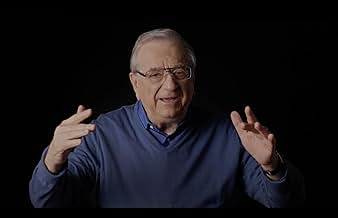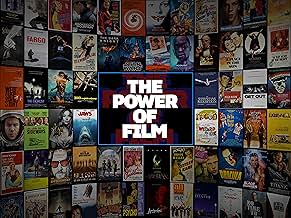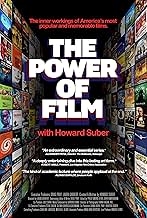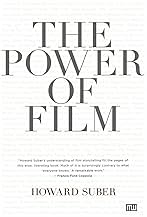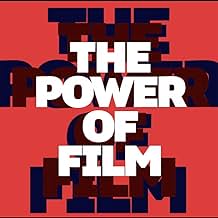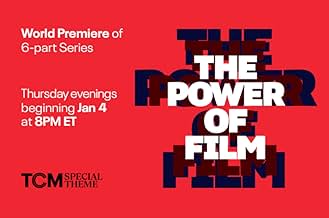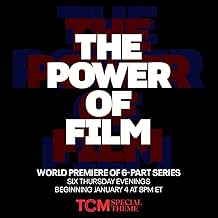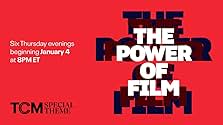Dives deep into the art of storytelling by examining the defining principles and inner workings of the most popular and memorable American films of all time.Dives deep into the art of storytelling by examining the defining principles and inner workings of the most popular and memorable American films of all time.Dives deep into the art of storytelling by examining the defining principles and inner workings of the most popular and memorable American films of all time.
- Star
Browse episodes
Featured reviews
Wow.
This documentary gives us the screenwriting essentials. If you are a serious storyteller, it's a "must see.".
UCLA Professor Howard Suber gifts us with wisdom, from a lifetime of teaching graduate level screenwriting, at the top film school in the world.
Perfectly edited for the general public.
In Prof. Suber's honor, UCLA film students coined the term "HOSH Pivot." Which is an acronym for "Howard Suber's One Hour Pivot," spelled backwards. HOSH means the plot takes a dramatic turn, one hour into the film. Which is a key structure of every great film. Once you've a created a new vocabulary word, you're established as a historical figure.
This documentary is a treasure. Which should be replayed again and again.
This documentary gives us the screenwriting essentials. If you are a serious storyteller, it's a "must see.".
UCLA Professor Howard Suber gifts us with wisdom, from a lifetime of teaching graduate level screenwriting, at the top film school in the world.
Perfectly edited for the general public.
In Prof. Suber's honor, UCLA film students coined the term "HOSH Pivot." Which is an acronym for "Howard Suber's One Hour Pivot," spelled backwards. HOSH means the plot takes a dramatic turn, one hour into the film. Which is a key structure of every great film. Once you've a created a new vocabulary word, you're established as a historical figure.
This documentary is a treasure. Which should be replayed again and again.
I would much rather listen to Spielberg or Scorcese discuss the power of film. I felt that Dr. Suber just states the obvious. There weren't many unique insights.
For example, he'll discuss the story structure of a particular film verbatim and explain how common writing threads are used in various films. I found myself repeatedly saying, so? I'm watching this episodically on TCM. So far, episode two is the best but not enough to recommend it. I see it has received an 8.3 rating on IMDB which is very high marks, so I must be in the minority on this. See for yourself as it is watchable and has moments.
For example, he'll discuss the story structure of a particular film verbatim and explain how common writing threads are used in various films. I found myself repeatedly saying, so? I'm watching this episodically on TCM. So far, episode two is the best but not enough to recommend it. I see it has received an 8.3 rating on IMDB which is very high marks, so I must be in the minority on this. See for yourself as it is watchable and has moments.
I am finding this documentary to be very powerful and enjoyably enlightening. Howard Suber has taught film classes at UCLA for 50 years, and he offers insights into writing, directing, characterization, fate and destiny, heroes and villains.
There are numerous clips from all kinds of movies as Professor Suber himself talks directly to the camera about whatever the subject may be. I was a TCF (telecommunications and film) major myself while in college in the mid-1970s, and I had some excellent professors, but listening to this man actually makes me want to take a class from him even today.
This is a superb documentary on TCM and hosted by Dave Karger, who is able to speak to director of the series, Laura Gabbert, and to writer, Doug Pray, both of whom had Suber as a professor in college. Simply well done all around.
There are numerous clips from all kinds of movies as Professor Suber himself talks directly to the camera about whatever the subject may be. I was a TCF (telecommunications and film) major myself while in college in the mid-1970s, and I had some excellent professors, but listening to this man actually makes me want to take a class from him even today.
This is a superb documentary on TCM and hosted by Dave Karger, who is able to speak to director of the series, Laura Gabbert, and to writer, Doug Pray, both of whom had Suber as a professor in college. Simply well done all around.
"The Power of Film" is an Incredibly succinct, refined, distilled, and evidence-based look at what makes a good story on screen. If I were an inexperienced woodworker, and this series were about saws, after watching it there would not be a lot standing between me and a viable career in carpentry. His analysis reaches back to the foundational achievements of the plays of ancient Greece, but he doesn't start there or end there. He updates them using this era's most memorable films, seamlessly, but starting from today and integrating backward. I learned so much about what makes great, enduring, archetypal comedy/tragedy stories, and then so much more about doing it on screen. Depicted in detail and depth is "What makes a modern immortal film.". I know it will delight writers, directors, and even cinematographers.
Personally, I have been mulling for years on an idea for a Sci-Fi story of novel/screenplay length. The idea is good, I felt, but I was getting nowhere with the execution. I watched "The Power of Film" by coincidence and by episode three I was thinking OMG WTF. The problems I was having were incredibly simple. Obvious, timeless and ubiquitous formulas were absent and when they were spelled out to me I was suddenly, fully deconstipated. I filled half of a tablet about what was really going on in my mind, what was missing. My story had been malformed and stunted by inexperience and lack of tools. You might think: "oh, he abandoned his grand vision in favour of formulaic tripe", but it was the very opposite.
I had tried to achieved a setting, a feeling, a loose plot, a grand vision, but a ton of ambiguity dominated it because of a lack of overarching form...I was lost inside scenes. This series revealed to me what I really wanted to say, and a greater plot emerged that actually made sense. I shared this with a peer and the next day they told me "I've been thinking about your story" and started asking questions about it. I finally had answers.
If you are an aspiring screenwriter or author, and you are stuck...these episodes are capable of un-sticking you. This series is an absolutely must-see for creators and consumers both.
Personally, I have been mulling for years on an idea for a Sci-Fi story of novel/screenplay length. The idea is good, I felt, but I was getting nowhere with the execution. I watched "The Power of Film" by coincidence and by episode three I was thinking OMG WTF. The problems I was having were incredibly simple. Obvious, timeless and ubiquitous formulas were absent and when they were spelled out to me I was suddenly, fully deconstipated. I filled half of a tablet about what was really going on in my mind, what was missing. My story had been malformed and stunted by inexperience and lack of tools. You might think: "oh, he abandoned his grand vision in favour of formulaic tripe", but it was the very opposite.
I had tried to achieved a setting, a feeling, a loose plot, a grand vision, but a ton of ambiguity dominated it because of a lack of overarching form...I was lost inside scenes. This series revealed to me what I really wanted to say, and a greater plot emerged that actually made sense. I shared this with a peer and the next day they told me "I've been thinking about your story" and started asking questions about it. I finally had answers.
If you are an aspiring screenwriter or author, and you are stuck...these episodes are capable of un-sticking you. This series is an absolutely must-see for creators and consumers both.
I'm adding a review to counter a review from 2/1/24. I won't say that this reviewer's thoughts aren't valid. I just wanted to clarify an issue that may have been overlooked, so others have a clear understanding of what to expect.
In the first episode of the series (as he does in the forward of the book with the same title) Suber states that he is only commenting on a select group of popular and memorable movies, since these are movies that most people have probably seen and remember. They act as exemplars. The goal here isn't to provide insight to a wide range of movies; it is to discuss why we respond to movies so that we can apply those insights to the movies we personally remember best.
Having said that this is a series of lectures, with the professor talking into a interrotron camera rig and with select movie scenes used as illustration. I can see how that might not be entertaining for a lot of people and even though I really liked this, I did zone out from time to time.
Personally, I don't think this is really a series about movies. This is a series about audiences. I think a more apt title might have been The Power of Audiences, but who would watch that:)
In the first episode of the series (as he does in the forward of the book with the same title) Suber states that he is only commenting on a select group of popular and memorable movies, since these are movies that most people have probably seen and remember. They act as exemplars. The goal here isn't to provide insight to a wide range of movies; it is to discuss why we respond to movies so that we can apply those insights to the movies we personally remember best.
Having said that this is a series of lectures, with the professor talking into a interrotron camera rig and with select movie scenes used as illustration. I can see how that might not be entertaining for a lot of people and even though I really liked this, I did zone out from time to time.
Personally, I don't think this is really a series about movies. This is a series about audiences. I think a more apt title might have been The Power of Audiences, but who would watch that:)
Details
- Color
Contribute to this page
Suggest an edit or add missing content

